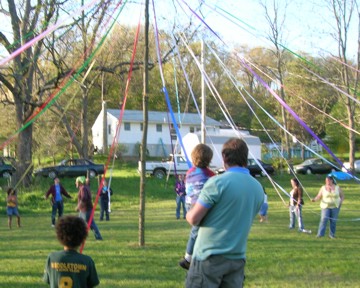Ampersand has an excellent post up about the Duke rape case. In it, she discusses the concept of innocent until proven guilty, and has some very smart things to say:
But “innocent until proven guilty” is a courtroom standard. My opinion is not the same as a courtroom, and blog posts don’t put anyone in prison. Nothing about the American system of justice requires ordinary citizens to refrain from having opinions; and it’s not inconsistant to want Courts to adhere to “beyond any reasonable doubt” while holding my personal opinions to a less stringent standard.
Some time back, we (my then-husband and I) were aware of a member of the Pagan community who had been accused of child molestation. The case was working its way through the courts and no verdict had been reached. We found out that the accused was going to be at a Pagan event during which children were ordinarily given a lot of freedom to roam. We contacted people in charge of both the event and the property, asking that this person be banned from this event. We were refused, and what the people we spoke to all said was “innocent until proven guilty.”
I was furious. Livid is a good word. If you’ve ever seen me mad, you might have come up with livid as the right word.
And what I said to my husband is “innocent until proven guilty” is for courts. For parents, the rule is dangerous until proven safe.
Pagans are so pluralistic, so free, that they sometimes fail to see danger in their midst. They bend over backwards to be fair, because we are a people who have suffered too much unfair treatment. But as a mom, I don’t bend in that direction. I bend over forwards, in a protective huddle. I make my child, and my community’s children, safe to the best of my ability. That’s my job.
The accused was convicted, and served some years in jail. He is now free and again has access to Pagan events. A glitch in the registration system causes him to show up on some sex offender lists but not others, affording him more freedom of movement than I, for one, find comfortable.
But again, the law is not community. People feel they have to make him welcome at events, because he served his time, and is legally able to attend the events. But legal is not personal. He’s still dangerous until proven safe.

